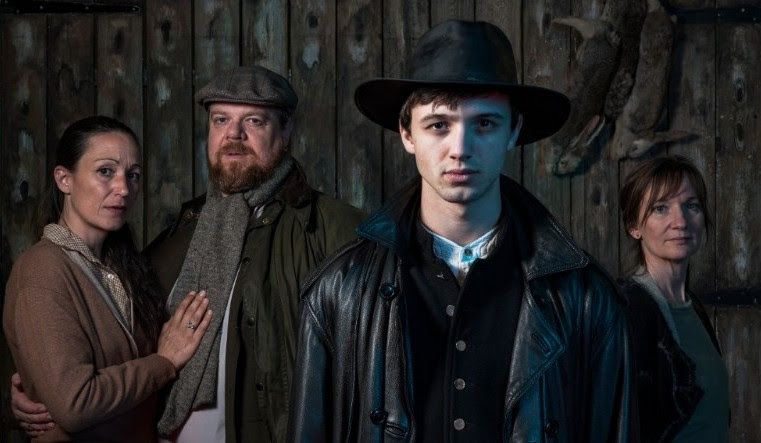Foxes are a metaphor for human imperfection in Dawn King’s Foxfinder
Foxfinder is set in a dystopian world ruled by fear and paranoia, which evokes in the viewers both familiarity and an unsettling feeling of the uncanny. In this clever parable written by Dawn King and directed by Tom O’Connor for the Loft Theatre, foxes are evil creatures which haunt farms, corrupt individuals and threaten civilization. These animals must be found and eradicated, come what may.
William Bloor is a foxfinder. He is extremely young, skinny and handsome. Liberating farms from the corruption of foxes is his only mission in life. He has been trained since he was a child to believe that these animals are the source of every vice and flaw in humans and nature. He knows no love; he only knows duty. That is until the day he arrives at Samuel and Judith Covey’s farm, which is suspected of fox contamination. The two farmers have lost a child and they are now struggling to meet the terms that the government has given them in order to keep their farm. As William investigates, his relationships with Sam and Jude grow strong. They establish dangerous connections that will change their lives forever.
The play is dense and compelling, but at the same time surprisingly moving
The play was first performed at the Finborough Theatre in London in 2011 and was highly phrased for its originality, winning the Papatango New Writing Competition that year. The play is dense and compelling, but at the same time surprisingly moving, depicting quotidian situations in an unusual and uncanny way. The only problem with the plot is the predictability of the end, which results in a sexual plot-twist and leaves you going home disappointed. The final scene in particular lacks drama and suspense.
As pointed out by The Telegraph, “King is trying to make you think something until you’ve already thought it.” Foxfinder forces you to think about your own ‘fox’, about your own weakness, about your own flaws, leaving you with the belief that all of us are imperfect and flawed. William believes he is infallible, until he meets Judith and falls in love with her, but his love is imperfect and sick; it will make him lose his mind.
Foxfinder forces you to think about your own ‘fox’, about your own weakness, about your own flaws
Elizabeth Morris’ interpretation of Judith Covey is outstanding and moving. She perfectly embodies a desperate and merciful woman, who too often is the only sensible character on stage, when the two men of the story are completely out of control. Craig Shelton plays Samuel Covey, with a deep voice and a strong presence on stage. Despite turning out to be the villain of the story, William is the real protagonist and the only deeply original character of the play. Ed Statham’s interpretation of the young foxfinder is heartfelt, if slightly unripe and immature at times.
Overall, Foxfinder is an interesting story, with important values and meanings. The dramatic effect of some important scenes, especially at the end, could definitely be improved by slowing the pace: the cast has all the potential to make this an even tighter production.

Comments